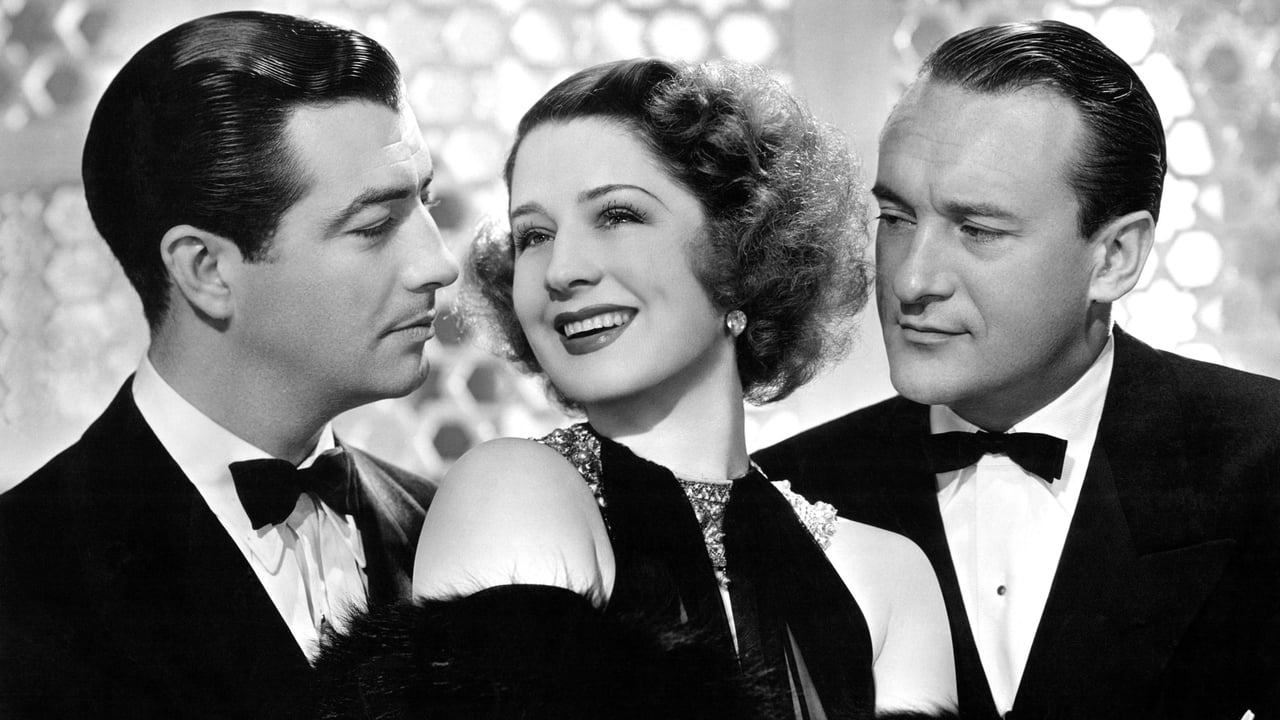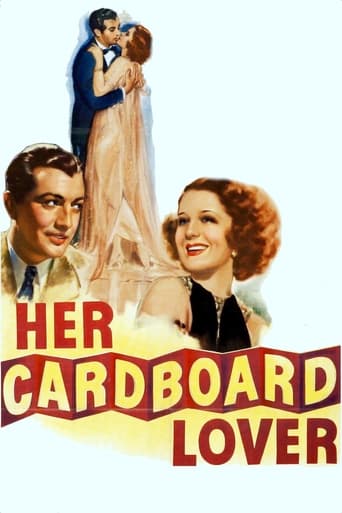Spoonatects
Am i the only one who thinks........Average?
Ogosmith
Each character in this movie — down to the smallest one — is an individual rather than a type, prone to spontaneous changes of mood and sometimes amusing outbursts of pettiness or ill humor.
Neive Bellamy
Excellent and certainly provocative... If nothing else, the film is a real conversation starter.
Yash Wade
Close shines in drama with strong language, adult themes.
edwagreen
An absolute inane farce. Is it any wonder that Norma Shearer's star power fell rapidly from grace after this 1942 bomb of a film?Shearer was looking older than ever. Whoever made her hair up in this film made her look even older.Robert Taylor showed in this film that he exactly was made for the comedy genre. George Sanders, as the boyfriend Shearer is in doubt with, tries hard but he is hampered like the rest of the cast by tedious and rather annoying writing.The best part of the film was the fight scene between Sanders and Taylor. Otherwise, this film is a complete dud.Shearer wavers back and forth regarding her feelings for Sanders. Taylor is immediately smitten by her and with those wide-opened eyes, he looked even more ridiculous.Basically speaking, this is a story about a woman who didn't know what she wanted. The film is as stiff as cardboard.
jotix100
This is the second attempt to bring Jacques Deval's play to the screen. The first one was a vehicle for Marion Davies and Nils Asther, directed by Robert Z. Leonard. This new version bears George Cukor's signature as the director. The film is interesting for two reasons: it marked the last time its star, Norma Shearer, appeared on a film, and it also has Robert Taylor doing comedy, something he wasn't seen in often."Her Cardboard Lover" is a sophisticated comedy that capitalizes on the strength of its stars. The screen play by Valerie Wyngate has some ups and downs in it that even the great Cukor wasn't able to solve. First, there is a marked age difference between the stars, not because Ms. Shearer looks older, on the contrary, she is in excellent form, but Mr. Taylor appears to be much younger.The film has some good moments for everyone. The best thing Mr. Cukor was able to do was to give the suave George Sanders the part of Tony Barling, the playboy who comes back to claim the love of Consuelo Croyden. They have parted in a bad way, but there's still something between the former lovers. By hiring Terry Trindale as the "fake" lover, in order to make Tony Barling jealous, a new dynamic enters into play.There are two extraordinary sequences toward the end of the film. The first one is the fight between Tony and Terry in the hotel's pantry when dishes, vases, and all kinds of porcelain gets smashed against walls. The second one is in the court that is presided by judge Sam, brilliantly portrayed by Chill Wills. The acting is first rate by this marvelous cast. In minor roles Frank McHugh and Elizabeth Patterson shine.The film is a light comedy that is a delight to watch.
blanche-2
Norma Shearer, in her last film, is a wealthy woman desperate to stay away from her on-again/off-again boyfriend (George Sanders) in "Her Cardboard Lover." To do this, she has Robert Taylor, a songwriter who's crazy about her, work off his gambling debt by pretending to be her boyfriend.A nice dramatic role would have been better for Shearer's final performance. But like Garbo, she went out with a comedy, and one that bombed at that, also like Garbo. One wonders what MGM was thinking. The dilemma seems to have been finding vehicles for these older stars as the world - and they - were changing.The film was made in 1942, and though it is a delightful comedy, it really has the look and feel of the '30s to it. There are some wonderful scenes - one where Taylor threatens to jump over a balcony and a dandy fight scene at the end. But in spots, it seems a little tired.Norma Shearer wears gorgeous clothes and is over-dramatic, which is what the part called for. Robert Taylor does a fine job, and George Sanders was wasted. One of the comments said that Shearer was too old for the role - yet the actors seem properly matched and this writer, anyway, had no idea of Shearer's age. In the end, though, it wasn't a fitting way for her to go out. The role hearkens back to a much earlier time. Perhaps, in the end, that's what she wanted.
nycritic
Even by 1942 standards of movie-making the setup which HER CARDBOARD LOVER presents was dated to the extreme. The machinations of one half of a pair (of husband/wife, ex-husband/ex-wife) to get the other back at the threat of marriage to another, divorce, or an eventual separation by means of jealousy, humiliation, or other schemes had been done much better in classics such as HIS GIRL Friday and THE PHILADELPHIA STORY. Both of these movies features women with a strong, indomitable screen presence and who played independent, proto-feminist characters. In both movies, both women were estranged/divorced from their (witty) first husbands and set to marry colorless men who were their exact opposite, and both would be bamboozled into rejecting their soon-to-be husbands and re-igniting their passion for each other.The plot in HER CARDBOARD LOVER switches the gender: here, it's Norma Shearer in the Cary Grant role out, this time, to ward off an ex-boyfriend (George Sanders) by means of hiring Robert Taylor to pose as her gigolo. The problem is, Shearer is much too old to be playing a role more suited to an actress in her mid-to-late twenties; Sanders is about as involved as a piece of furniture for the most -- any man who would be in love with his fiancée, on seeing a strange man come out of her bathroom as happens here, would knock the lights out of him and cause a huge scene. Not here. And Robert Taylor plays his part as if he were trying to channel Cary Grant half the time, not in speech inflections but in overall essence.But the worst part of it is Shearer herself. For an actress used to parts which gave her a sense of intellectual sexiness and dramatic presence, playing Consuelo Craydon seems to put her into throes of complete over-acting, over-emoting, and over-gesturing which, while still a part of her style of acting and more appropriate ten years earlier, makes her look like an extremely mannered performer wrenching the joke out of a situation like water from a fairly dry sponge. It only fuels the fires that tell the theory which gives Irving Thalberg the maker of her career and chooser of (most of her) roles; why she passed on roles such as Charlotte Vale and Mrs. Miniver on mega-hits NOW VOYAGER and MRS. MINIVER is a mystery, but then again, most accounts also state that by this time she had just burnt out from acting, that she'd had lost interest in the whole thing altogether and it's no secret that anyone who has experienced this sort of thing has essentially lost focus and can't wait until retirement or the end of a contract is near to leave as soon as possible. Such could be the case here. She seems lost, she seems tired, she seems ill at ease, going through autopilot instead of living the part. After this film she would make no more, but would be responsible of discovering Janet Leigh who would come into her own as a screen star during the late 40s and into the 60s.

